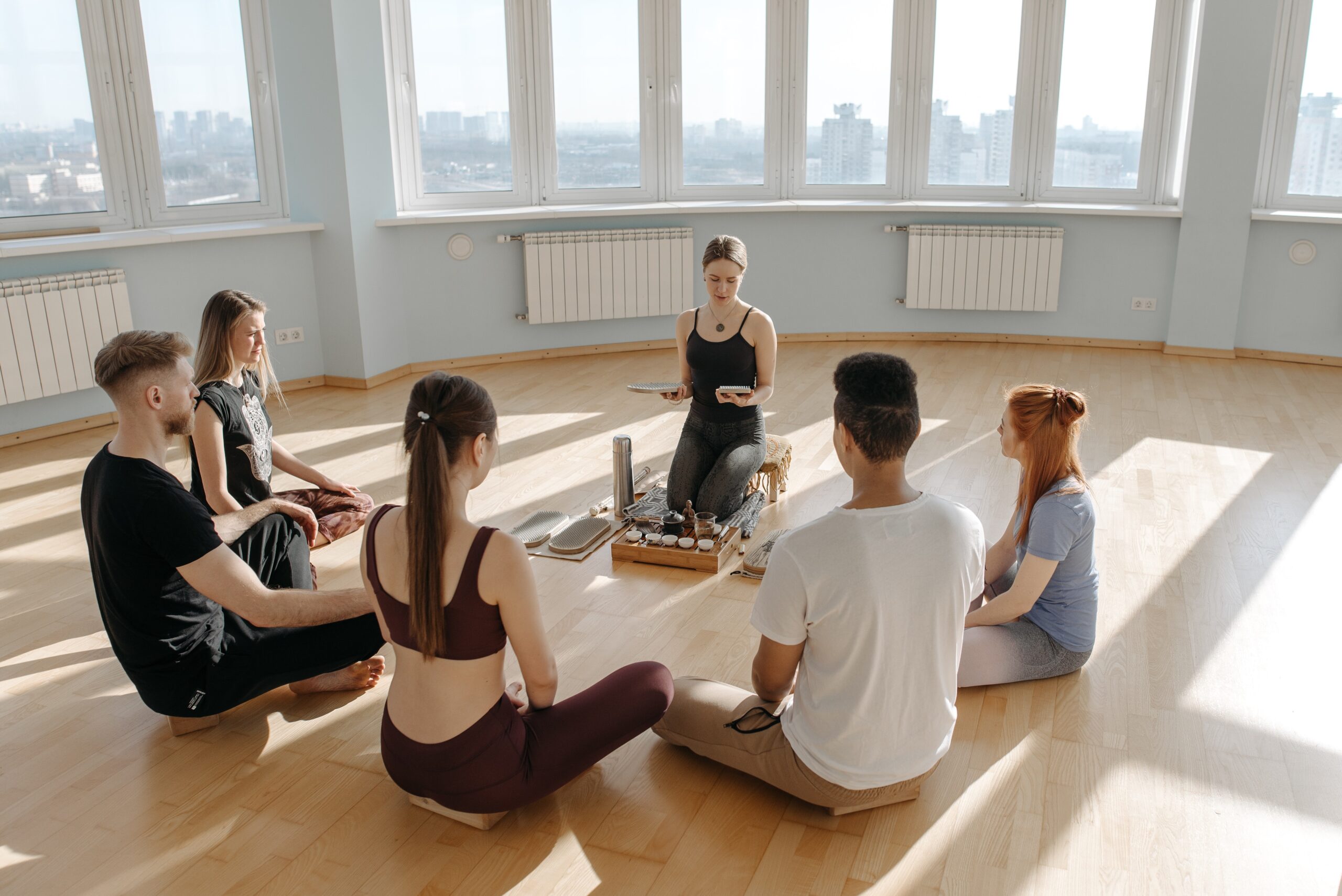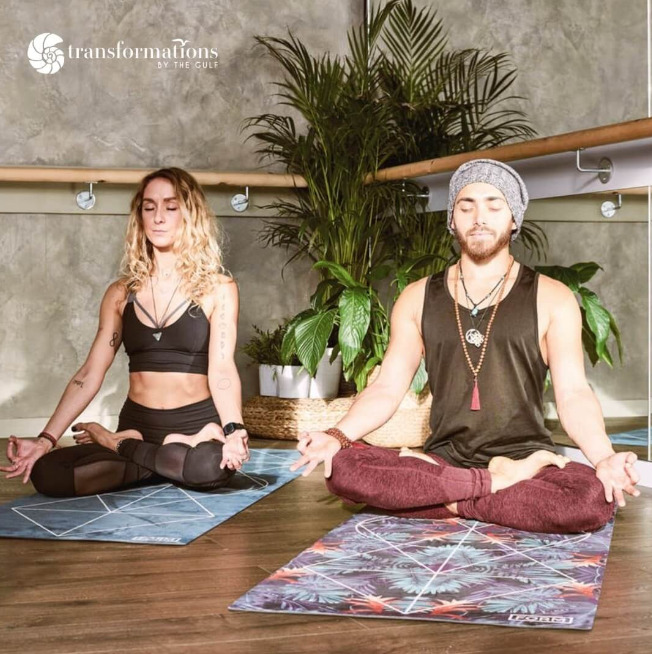Benefits of Exercise in Addiction Treatment
Benefits of Exercise in Recovery
Experts believe that regular physical activity can act as a healthy building block for avoiding addictive substances. That’s because exercise and substance abuse work on similar parts of your brain. They both activate your reward center, which triggers the release of dopamine and serotonin.
How Does Exercise Affect Your Mind and Body?
When you’re recovering from alcohol or drug addiction, exercise is beneficial for both your body, and your mind. Physical and mental health are both connected, and exercising gives us the opportunity to improve both at the same time. Let’s take a closer look at the physical and mental health advantages that come with regular exercise.
Physical Health Benefits
Physical activity can help you maintain a healthy weight and strengthen your body. Exercise is helpful because weight struggles are sometimes connected with substance use recovery and often times experience an increase in appetite in early recovery.
The physical health benefits of exercise extend far beyond managing weight. According to the Centers for Disease Control and Prevention (CDC), getting active for at least 150 minutes per week can actually reduce the risk of diabetes, cardiovascular disease, some types of cancers and other chronic diseases. Routine exercise can also increase the brain’s amount of new nerve connections being formed, which helps the brain’s healing process from the harmful physiological effects of frequent substance use.
Mental Health Benefits
In addition to the physical health benefits, regular exercise offers many psychological benefits. When you engage in physical activity, your body releases endorphins. Endorphins interact with your brain receptors to decrease your perception of pain, much like morphine does. The natural activation of these receptors through physical exercise doesn't lead to addiction. This process can result in a lot of positive feelings of euphoria after each workout.
Forming good mental health habits and coping skills is especially important for those in recovery because mental health disorders like depression and anxiety can often co-occur with addiction. Exercise during recovery can be a necessary component in improving mental health and generating a more positive outlook on life. Other mental health benefits of exercise include sharper thinking, learning and judgment skills.
Want to learn more about our yoga therapy or need help dealing with addiction? Contact us to learn more about our treatment services and get help today.
If you or someone you know would like to know more about Transformations by the Gulf Substance Abuse Treatment Center Give us a Call 24/7 (727)498-6498
The success of a person’s recovery depends on the level of personalized treatment provided. It is important to find an addiction treatment program that works. When we say our treatment is individualized, we mean that we craft a program that is tailored to address the client’s unique physical, mental and emotional needs.
In the client’s first 24 hours with us, we’ll evaluate their current state and work to understand what challenges they need to overcome. They’ll also have an initial session with our doctor and meet with one of our licensed mental health professionals.
After the initial evaluations, we’ll design a treatment plan with the sole mission of helping the client overcome and heal from addiction. Their program will focus on things such as:
- Addressing and Identifying root causes of addiction.
- Creating a support system.
- Developing healthy stress management techniques.
- Eliminating Substance use.
- Learning how to communicate emotions effectively.
- Maintaining a healthier lifestyle.
- Repairing damaged relationships.
Our Facility is near the beach and offers a comfortable setting for substance abuse treatment and recovery.
What a Day is Like in Our Treatment Facility.
Why Transformations by the Gulf?
Adapting Coping Skills in Recovery
Adapting Coping Skills in Recovery
When you begin the road to living cleaning and sober you need to consider the mind, body and soul. This simply means to think about how all aspects of your being are functioning at any given point in time.
When these three points are healthy, you will have a better chance of staying clean and sober. Use these coping mechanisms to help you achieve this sobriety:
Focus on Controlling Stress
Learning how to manage stress is a vital part of recovery. Stress has the power to disrupt your cause of friction and lead to relapse. Adapting Coping Skills in Recovery is important. There are many methods people can use to help control stress. These include:
- Deep breathing. Learning how to slow your heart rate and breathing rate through deep breathing is easy. When you feel stressed, breathe in deeply to a count of 5, hold your breath for 5, and release to a count of 5. Repeat 5 times.
- Yoga. Yoga’s poses and movements, combined with breath work, help to quiet your mind and achieve a calm state.
- Meditation. Find a quiet time to sit alone quietly and meditate. Practice this process daily and soon you will learn how to ease distracting thoughts and worries.
- Massage. A massage can help release the toxins in your muscles and relax the body.
- Music. Music has great power to affect your state of mind. Create a playlist of songs that can relax you, uplift you, or motivate you. Let these songs play while you work, clean, cook or relax.
Take up Healthy Habits.
Turn boredom into being productive by taking up some healthy new hobbies that bring you joy. Consider these:
- Arts and crafts. Tap into your artsy side as an outlet for your soul. Take up a new craft, like 3d printing, painting, or building models.
- Gardening. The process of planting and growing fruits or vegetables can be very fulfilling and rewarding.
- Photography. Capture the stunning beauty that is all around you. Taking photos is a great pastime that allows you to focus your mind on all that is pleasant in your surroundings and in nature. See the world through the lens of your camera.
- Cooking. Sign up for a cooking class or tune in to an online cooking show. You will be inspired to try new recipes.
Take time to reflect.
Carve out a little time each day to nurture your spiritual side. You might pick up a book that inspires you. Maybe you spend some time in prayer or start a gratitude journal.
Cultivate new friendships.
Without each other, we will fail in our efforts to get better. Our support sources include friendships, and these must be nurtured always. Build up your new sober network and sow the seeds for a lifetime of mutual caring and support.
Go to therapy.
Do not, repeat-not, ignore the need to keep up with your therapy sessions. Sometimes no matter all your efforts you still find yourself on shaky ground. Enlist the support of your group or one-on-one therapy sessions to help you through a challenge.
Stay active.
Sitting is one of the least healthy things we can do. To keep our bodies, minds, and spirits in a healthy place it is crucial that we remain active. Define your fitness program any way you want, but just be sure to include regular movement into your days and weeks.
Learn to distract yourself.
One of the most useful tools in recovery is riding the wave of a trigger or craving to avoid a relapse. This is a skill that takes some honing. Create a list of 2 or 3 things you can do to distract yourself when triggered. These can be things like taking a run, going to a meeting, or meeting up with your sponsor.
Improve sleep quality.
Nothing will ruin your day like a bad night’s sleep. Respect your body’s need for restful sleep and do the things that will help you achieve that. These include avoiding caffeine after 3 pm, avoiding heavy meals at night, and shutting your devices off an hour before bed.
Staying sober is about creating healthy balance. By giving all aspects of your being the needed love and support you increase your chances of recovery success.
Transformations by the Gulf Addiction Treatment Develops Coping Skills and Shows You How to Use Them.
Transformations by the Gulf Addiction Treatment devotes its efforts to caring for and helping heal the whole person. It is through this pathway that real change can be made, and wellness restored. Learning and practicing coping skills for addiction recovery is a core treatment focus in our program. For more detail about the program, please reach out to the team today at (727)-498-6498
What is Holistic Substance Abuse Treatment?
Substance abuse and mental health treatment has evolved in the last few decades. As a result of this evolution, individuals now have more Types of Therapy than ever before. While the abundance of options can be a lot to take in, it means there is now more opportunity to find treatment that better suits you.
Alongside traditional substance abuse treatment methods and evidence-based models, more treatment facilities have started adding holistic treatment options into their program. Holistic treatment focuses on treating the whole person, not just the symptoms of a disease. Understanding holistic treatment and its benefits may help you determine if it’s a better option for your journey of recovery.
DEFINING HOLISTIC TREATMENT AT TRANSFORMATIONS BY THE GULF
Before diving into its benefits, it is best to begin by defining what the term “holistic treatment” means and what a “holistic approach” to treatment is. A holistic approach considers the interplay between a person’s physical, emotional, social, and spiritual needs when seeking treatment. Rather than seeking to alleviate symptoms at a surface level, holistic treatment dives deeper to discover the root causes of an individual's struggles. Everyone’s experience with addiction or mental illness is different, so individualized treatment is a necessity.
Another fundamental factor of holistic treatment is its focus on wellness. Those in recovery are often told that treatment requires them to make life changes. To live a life of recovery, individuals must strive for improved health and wellness. Holistic practices help people make healthy life choices and, in the long run, improve well-being in every aspect of life.
TYPES OF HOLISTIC PRACTICES YOU CAN TRY AT TRANSFORMATIONS BY THE GULF
Holistic therapy programs usually feature personalized, non-medical, whole person approaches to recovery. Recovering individuals can practice these approaches through several mindfulness-based practices. Upon leaving treatment, those practices become tools to help those in recovery maintain long-term healing and a healthier lifestyle. Consequently, holistic tools are helpful when integrating back into everyday life post-treatment.
The following practices are simple mindfulness-based holistic practices that anyone can try.
ACUPUNCTURE
Acupuncture is another holistic practice many people try. This holistic healing method involves a trained professional inserting thin needles into certain nerve points in a patient's body. The acupuncturist may then press on or move the needles in certain ways with their hands or small electrical devices. Doing so promotes blood flow and electrical stimulation in the body to activate the body's natural healing processes.
These are just a few holistic approaches to try. Some practices will be more effective than others for certain people. When individuals begin experimenting with different holistic techniques, they will learn what works best for them, their body, and their situation. One should consult their doctor or a mental health professional to determine what practices may best benefit their recovery process.
ART THERAPY
Meditation is a form of mindfulness that helps individuals slow down, breathe, and focus on the present moment. In addition to reducing and managing stress, meditation helps people lower their heart rate, normalize their blood pressure, and improve sleep.
BOAT THERAPY
Boat therapy is a form of treatment that uses therapeutic sessions and activities on a boat to help people cope or overcome a wide range of challenges and issues. And though you might just now be hearing about it, boat therapy has been around for years.
CUPPING THERAPY
Cupping therapy is an amazing ancient form of alternative medicine in which a therapist puts special cups on your skin for a few minutes to create a suction. Patients get it for many reasons, including to help with blood flow, inflammation, pain, relaxation and well-being, and as an alternative type of deep-tissue massage. It dates back to ancient Egyptian, Chinese, and Middle Eastern cultures. One of the oldest medical textbooks in the world, the Ebers Papyrus, describes how the ancient Egyptians used cupping therapy in 1,550 B.C.
MEDITATION
Meditation is a form of mindfulness that helps individuals slow down, breathe, and focus on the present moment. In addition to reducing and managing stress, meditation helps people lower their heart rate, normalize their blood pressure, and improve sleep.
YOGA
Yoga helps individuals struggling with addiction and/or mental illness by reducing withdrawal symptoms and cravings and offering a healthy outlet to cope with stress. Yoga can encourage people to increase strength and self-awareness, develop healthy exercise and eating habits, and even achieve emotional healing through intentional movement and breath.
If you or someone you know would like to know more about Transformations by the Gulf Substance Abuse Treatment Center Give us a Call 24/7 (727)498-6498
The success of a person’s recovery depends on the level of personalized treatment provided. It is important to find an addiction treatment program that works. When we say our treatment is individualized, we mean that we craft a program that is tailored to address the client’s unique physical, mental and emotional needs.
In the client’s first 24 hours with us, we’ll evaluate their current state and work to understand what challenges they need to overcome. They’ll also have an initial session with our doctor and meet with one of our licensed mental health professionals.
After the initial evaluations, we’ll design a treatment plan with the sole mission of helping the client overcome and heal from addiction. Their program will focus on things such as:
- Addressing and Identifying root causes of addiction.
- Creating a support system.
- Developing healthy stress management techniques.
- Eliminating Substance use.
- Learning how to communicate emotions effectively.
- Maintaining a healthier lifestyle.
- Repairing damaged relationships.
Our Facility is near the beach and offers a comfortable setting for substance abuse treatment and recovery.
What a Day is Like in Our Treatment Facility.
Why Transformations by the Gulf?
Benefits of Yoga in Addiction Treatment
Benefits of Yoga in Addiction Treatment
Benefits of Yoga in Addiction Treatment is amazing. According to the Surgeon General, 1-in-7 people in the United States. will face substance abuse and addictions. With almost 21 million Americans dealing with addiction, it's a dangerous problem. However, the right recovery center can help.
Using yoga can help correct addictive behaviors. As a method of holistic treatment, yoga helps individuals through the recovery process.
Some recovery centers include yoga as a method of therapy to help people develop and practice coping skills as a way to manage stress. Yoga also helps to balance both the mind and body which reduces addictive behaviors.
The evidence found here might surprise you. Keep reading to learn all about the many benefits to using yoga for addiction recovery.
Yoga Reduces Stress in Recovery
One of the many benefits of yoga is a reduction in levels of stress. Learning mindfulness and even practicing some breathing techniques helps to minimize stress.
In active addiction, you use drugs or alcohol as coping skills during difficult times. Transformations teach Yoga to clients so they can learn these coping skills and practice them throughout the recovery process. One of the benefits of our substance abuse treatment program is that we don't just highlight coping skills we teach you how to incorporate them in your everyday life so when you do feel triggered you can use a coping skill to get you through the difficult time.
Stress tends to trigger addictive behaviors primarily because you are so used to use drugs or alcohol as a way to cope with stress, yoga techniques can help break that vicious cycle of addiction. By winning out over temptation, recovery patients feel better about themselves.
As an added benefit, yoga boosts your mood and improves your willpower which also helps lower stress.
Yoga Helps Control Addiction and Cravings
Addiction alters the brain, impacting both brain structure and function. Because of this, overcoming addiction isn’t as simple as saying no.
Drugs, alcohol, and other addictions hijack the brain. They fill the nucleus accumbent with an overabundance of dopamine.
Dopamine is a neurotransmitter that leads to feelings of pleasure as part of a reward system. Addiction creates an overabundance of pleasure that often leads to drug misuse, including overdoses.
But one of the benefits of recovery yoga is that it returns the brain’s dopamine levels back to normal. This helps to suppress unhealthy cravings tied to that rush of dopamine in the brain.
Yoga Increases Self Awareness
Practicing yoga on a regular basis allows patients to become attuned to their own bodies. They can recognize the warning signs of addictive behavior before it happens.
Noticing and acknowledging cravings as they happen is critical to keeping them in check. Instead of ignoring the signs, individuals learn to listen and understand their bodies in a non-judgmental way.
Yoga Reduces Anxiety with GABA
Another benefit to yoga is a healthy increase in GABA or Gamma-aminobutyric acid. GABA is a neurotransmitter that reduces anxiety and stress. Both stress and anxiety are common in patients suffering from drug withdrawals.
When someone experiences stress or anxiety, their heart rate, and blood pressure rise. Stress hormones like cortisol and adrenaline also rise in response to that feeling.
Regular yoga may enhance and enlarge certain areas of the brain responsible for stress reduction, such as the hippocampus.
Yoga Allows Patients to Regain Control
Many people that struggle with addiction feel they have no control over their lives. They may feel like they’re caught in a downward spiral and are unable to pull themselves back up.
Because of the impact of addiction on the brain itself, it can be hard to feel like you’re in control of your own body.
Yoga teaches people discipline. Instead of reacting emotionally, people learn to evaluate their responses and control their temper.
People that practice yoga treatment for recovery often find it easier to take responsibility for their own choices. This helps to reestablish a sense of control over the body and mind. It feels like a win in the battle against addiction.
Yoga Creates Can Aide the Creation of a Spiritual Awakening
Yoga is an ancient practice that stimulates your spiritual senses. You don’t have to be religious or understand spirituality to practice yoga, either.
Yoga is far more than a physical exercise because a large part of this practice is mental. Individuals learn to view themselves in a new light, evaluating the way they think and act and how that impacts the world around them.
By practicing yoga and meditation, people learn to observe their environment. They understand there are factors outside their control.
You cannot stop the sounds of a barking dog or fix an angry boss, for example. Giving up control and simply observing has a cathartic effect on individuals dealing with addictive behaviors.
Yoga Creates a Sense of Inner Peace
Regular relaxation and meditation techniques promote a sense of calm and inner peace. People who practice yoga often find themselves feeling stronger emotionally.
Yoga allows people to focus on mindfulness rather than temptations, which aids in impulse control. This inner strength helps patients regain a sense of confidence.
Yoga Can Prevent Relapse
Relapse is so common after recovery that roughly 90 percent of people have a slip before, they defeat addiction. But patients can prevent the chances of relapse after recovery by recognizing the signs and practicing yoga.
Those that practice yoga for addiction become attuned to their body. They recognize the warning signs of relapse before it happens.
Yoga also prevents many of the mindsets and behaviors associated with relapses such as loss of judgment and control.
Practicing relaxation techniques and exercises like yoga help to combat negative thoughts. It encourages individuals to examine and accept their feelings instead of ignoring them.
Practicing Yoga for Addiction Recovery
Using yoga for addiction recovery is a holistic method of treatment that helps individuals overcome addictive behaviors and cravings. Along with other methods of treatment, yoga helps people regain control and balance of their mind and body.
The road to recovery is long and filled with many obstacles, but practicing yoga is one way to prevent a relapse. Plus, yoga is a life-long skill that people struggling with addiction can turn to at any time.
Want to learn more about our yoga therapy or need help dealing with addiction? Contact us to learn more about our treatment services and get help today.
If you or someone you know would like to know more about Transformations by the Gulf Substance Abuse Treatment Center Give us a Call 24/7 (727)498-6498
The success of a person’s recovery depends on the level of personalized treatment provided. It is important to find an addiction treatment program that works. When we say our treatment is individualized, we mean that we craft a program that is tailored to address the client’s unique physical, mental and emotional needs.
In the client’s first 24 hours with us, we’ll evaluate their current state and work to understand what challenges they need to overcome. They’ll also have an initial session with our doctor and meet with one of our licensed mental health professionals.
After the initial evaluations, we’ll design a treatment plan with the sole mission of helping the client overcome and heal from addiction. Their program will focus on things such as:
- Addressing and Identifying root causes of addiction.
- Creating a support system.
- Developing healthy stress management techniques.
- Eliminating Substance use.
- Learning how to communicate emotions effectively.
- Maintaining a healthier lifestyle.
- Repairing damaged relationships.
Our Facility is near the beach and offers a comfortable setting for substance abuse treatment and recovery.
What a Day is Like in Our Treatment Facility.
Why Transformations by the Gulf?



